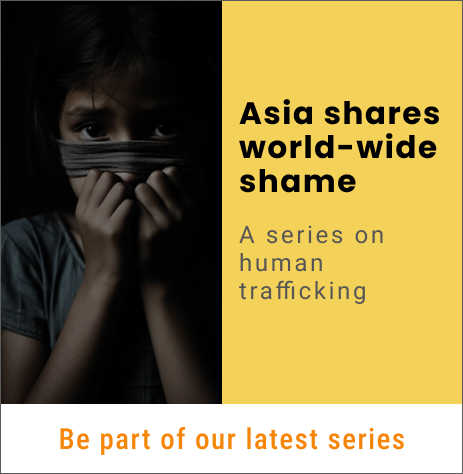Less than 30 percent of people in Hong Kong, Japan, South Korea, Taiwan, and Vietnam say women have an obligation to society to bear children, according to a recent survey.
South Korea and Vietnam had the highest shares of adults who said women had an obligation towards childbirth (29 percent each), followed by Hong Kong (18 percent), Japan (13 percent), and Taiwan (16 percent) respectively.
Two-thirds or more of the respondents of a Pew Research Center survey conducted between June 2 and Sept. 17, 2023, said “women should decide for themselves whether to bear children,” the survey results published on April 3 showed.

Japan topped the list with 79 percent of respondents stating that women were free to choose their childbirth preferences.
This was followed by Hong Kong (78 percent), Taiwan (70 percent), South Korea (68 percent), and Vietnam (67 percent).
The survey also noted the demographic differences that affected society’s views on childbirth decisions.
“Across all places surveyed, older adults are more likely than younger adults to say women have a societal obligation to bear children,” Pew Research said.
“In general, men are somewhat more likely than women to say women have a duty to bear children,” Pew Research pointed out.
Across all the five countries surveyed, adults with lower levels of education are more likely than those with higher levels of education to say women have a societal obligation to have children, Pew Research said.
“Those who are or have been married are also more likely than those who have never been married” to say women have a societal obligation to have children, Pew Research pointed out.
The responses from South Korea indicated that Buddhists, Christians, and those who say they are not affiliated with any religion had varying responses.
About four in ten Korean Buddhists (43 percent) said that women are obliged to have children, compared with 33 percent of Christians and 22 percent of religiously unaffiliated people.
Additionally, in Japan, South Korea, and Taiwan, adults who pray daily are somewhat more likely than those who pray less often to say women are obligated to have children, Pew Research said.
According to the survey, Hong Kong (0.75), South Korea (0.88), Taiwan (1.11), and Japan (1.30) had fertility rates below the average rate (1.59) among members of the Organization for Economic Cooperation and Development, a group of mostly advanced, democratic countries, in 2021.
The only exception was Vietnam, which had a fertility rate of 1.94 and dropped below the global replacement rate of 2.10 births per woman for the first time around 2000.
The replacement rate is the total fertility rate required to maintain a population at a constant size.
The low fertility rate “is expected to continue for at least the next 50 years,” Pew Research said.
Concerns about the low fertility rates have caused the governments in the surveyed countries to adopt various measures to delay the impending demographic crisis.
For example, Japan has been giving many families monthly cash stipends for more than 50 years.
Parents in South Korea and Taiwan also currently receive a monthly stipend for each young child, whereas parents in Hong Kong receive a one-time payment when a baby is born.
Women in some Vietnamese districts and cities receive cash or gifts if they have two children before the age of 35, Pew Research said.
“Other government policies have focused on increasing the amount of paid parental leave, helping pay for childcare, or promoting a fairer distribution of household responsibilities for couples,” Pew Research said.
Credit: Source link




